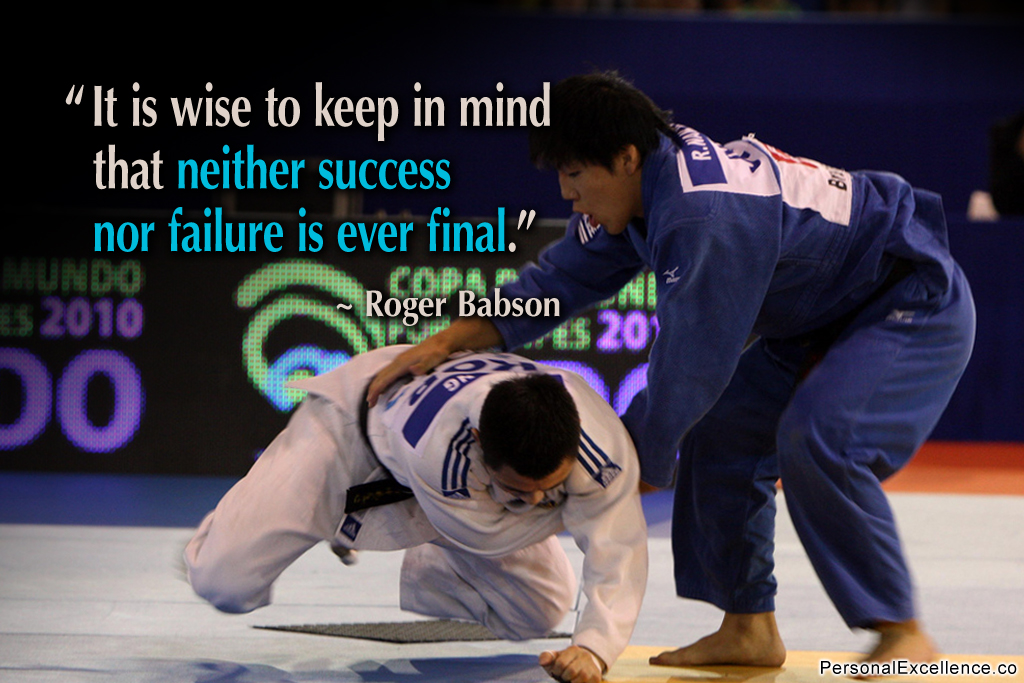
(Image: Antonio Guillem)
“A happy person is not a person in a certain set of circumstances, but rather a person with a certain set of attitudes.” — Hugh Downs
What does it take to be happy? In this guide, I share 10 principles for happiness. :)
1) Don’t repress negativity
This may seem surprising, but the first step to happiness is not to repress negativity.
Why? Some people think that happiness is about smiling, talking about positive things, and not complaining. But then they take it to the extreme and avoid thinking or saying anything negative.
Why is this unhealthy? It’s normal to feel negative when bad things happen. When we repress these feelings and pretend to be happy, this negativity gets bottled up. Even though they are not visible, they are there. Over time, they weigh us down and take a toll on us. Some people sink into depression because they push away their negative feelings without dealing with them.
So how should you deal with them?
- Unload your mind regularly. I find brain dumping very useful. Meditation helps in calming your mind. It’s okay to use destressing methods like playing games, taking a walk, venting, and listening to music, as long as you return to dealing with the issue after that.
- Identify the source of your unhappiness. Ask yourself, “What’s making me unhappy?” Write the answers in a journal. The answers may surprise you.
- Create a list of steps to address your unhappiness. See next tip.
2) Fix what’s making you unhappy
Whenever I’m unhappy, I fix the issue right away with a 3-step approach. First, I identify the issue at hand. Second, I identify the steps to address it. Then, I act on those steps right away. For example:
- Quitting my previous job as it was not my passion.
- Working on my relationship with my parents because it wasn’t where I wanted it to be.
- Addressing my emotional eating issues because it was causing me anguish and messing up my weight loss efforts.
- Letting go of toxic connections that were killing me.
If something is bothering you, fix it. Don’t let your unhappiness linger. Here are some tips:
- Fix the issue right away. Don’t wait. The longer you wait, the unhappier you are.
- Focus on what you can affect. This means working on (a) what’s in the present, and (b) your thoughts and actions which you can control. Don’t focus on things in the past or things that have yet to take place. Don’t focus on other people’s thoughts and actions, which you can’t control.
- Remember that every problem has a solution. It’s a matter of breaking it down and solving it.
- Once you have done everything, let things run their course. You have done what you can, so it’s time to let the universe do its job.
3) Update your beliefs
If your unhappiness persists even though you have done what you can, then re-evaluate your beliefs.
In my story on How I Moved On From a Heartbreak (written back in 2010), I shared that G’s non-reciprocation of my feelings left me broken on the inside. I had concluded that something was wrong with me, that I wasn’t good enough, and I was doomed not to meet anyone in the future.
However, as I shared in part 3, I later realized that my unhappiness was misplaced. My conclusions were not true. I had wrongly based my self-worth on whether he wanted to be with me when my worth is independent of this event. I had wrongly concluded that I wouldn’t be able to meet anyone else when it only meant that he isn’t the right guy for me. Realizing these falsehoods removed my unhappiness.
The best beliefs are the ones that empower you. If a belief is making you unhappy, review the belief and challenge it. There is no point in holding negative beliefs that disempower you. Drop it and adopt a new belief that empowers you.
4) See the positive side of things

(Image: Hartwig HKD)
Have you heard of the phrase, “Behind every dark cloud is a silver lining?” What it means is, no matter how dire a situation seems, there is always an upside.
For example, here are some things most of us would regard as negative:
- Arriving late for a meeting
- Going off track on your weight loss plan
- Failing at a job interview
- Getting laid off
- Breaking up with your partner
- Facing a difficult situation
If we look at each situation, there is a positive side:
- Arriving late → You learned the importance of being punctual, albeit the hard way.
- Going off track on your weight loss plan → You now know a new pitfall in your weight loss plan, which means you are one step closer to your goal.
- Failing a job interview → You know what to avoid in your next interview. This will help you perform better in future interviews and secure a better job.
- Getting laid off → You have time to reflect on what you want to do in life. You can now take on new opportunities, such as exploring a new career path, starting your business, or joining in a new role.
- Breaking up with your partner → Your partner was probably not compatible. You can now meet new people and meet someone more compatible.
- Facing a difficult situation → The process of dealing with this will make you stronger and wiser. This will help you in future challenges.
The above is fact, not fiction. I know people who have failed job interviews, only to secure better jobs after that. I know many people who had painful breakups and met their soulmate later. I have been in difficult situations before which helped me grow as a result.
Everything in life has an upside to it. It is up to you to identify the silver lining. Some tips to do that:
- Recognize there is always something good to be gained from each situation. It’s up to you find that.
- What have you gained from this incident? Everything you have experienced, both good and bad, would not have taken place if not for this encounter.
- What lessons have you learned? What skills have you developed from this?
- Every problem comes with its set of opportunities. What opportunities do you have as a result of this problem?
5) Let go of expectations

(Image: Pink Sherbet)
Focus on your intention, not narrow definitions of your intention. I used to be unhappy because I had very specific definitions of how things should manifest. When I focused on my intention rather than specific definitions of how things should happen, I became much happier.
For example, I used to narrowly define my ideal family relationship as one where everyone openly communicates. However, the relationship between me and my parents has always had little to no communication. No matter what I did, I could not attain my desired relationship, as I shared in part 2 of the series. This made me very miserable and increased the tension in our relationship.
After a long struggle, I realized that I had approached the situation wrongly. What I really wanted was a loving family relationship, and I thought open communication was the way to go. But my parents have their language of love, and it’s not communication. It’s through little acts of love. I was not able to see it because I only saw communication as the language of love.
Focusing on my intention for a better family relationship rather than my specific definition of what an ideal parent-child relationship should be helped me attain a better relationship with them. I no longer resist my parents’ lack of openness since that is just the way they are.
Whenever we have a goal, it means we have an underlying intention. There are countless ways this intention can be manifested. Do not get hung up on your one definition of your goal. Stick to your intentions, not specific definitions of how you want your goals to manifest. Once you do this, you will realize that you now make faster progress than ever, and it was your narrow definitions that had prevented you from moving forward initially.
Listen to my podcast: What is the Message of Your Goal?
6) Be grateful for what you have
No matter where we are in life, there are always people worse off than us. For example, even though we may want a nicer house, we are doing better than the homeless man on the street, who has no home and no refuge in the cold winter. Even though we are overwhelmed with work, at least we have a job. Even though we may be bothered by bad neighbors, we could have worse problems.
Take stock and be grateful for what you do have. Be grateful you’re not dealing with worse situations. Be grateful you are alive. Even if you think you have nothing, you always have you and your higher self. This is the most important force you ever need in your life.
Read:
- How To Start When You Have Nothing
- Live a Better Life in 30 Days, Day 14: A Day of Gratitude
- Be a Better Me in 30 Days, Day 12: Show Your Appreciation
7) Think of your ideals vs. problems

(Image: Iakov Kalinin)
Many of us tend to turn our energy to our problems. However, doing so puts our attention on the negative and reminds us of things we don’t want, which breeds more negativity.
Here’s a better way: Rather than wear yourself out with liabilities, think in terms of your ideals instead. Ask yourself: “What is my ideal vision?“
I often pose this to my clients who are bogged down by problems. It never fails to light a spark in their eyes, after which they begin to talk excitedly about they want. :)
There are 3 important benefits of focusing on ideals vs. liabilities. Firstly, you start thinking about possibilities rather than limitations. Secondly, you get clarity on what you want, which will help you achieve your ideal life. Thirdly, by thinking of your ideal vision, you enter a positive mental state, which makes it easier to address challenges in your way.
That’s not to say that you ignore your problems and pretend they don’t exist. It means you don’t let them tie you down but remain mindful of them.
For example, if you have a $100k debt, don’t focus on that. Be aware of your debt, but focus on wealth-generation opportunities (read my client story of how he cleared his 6-figure debt). If you are working in a dissatisfying job, focus on your ideal career vision and how you can create that. If you just lost your job, focus on the new jobs you want. If you are surrounded by negative people, focus on the positive people you want to meet. If you are single and constantly meeting bad dates, focus on your ideal relationship and the qualities of your ideal partner.
8) Live a purposeful life

(Image: Pat Dalton)
Living a purposeful life, where you have an empowering life purpose and inspiring goals, paves the way for a happy life.
Have you set your life purpose? If not, do so now. I’ve written a lot on this which I recommend you to read:
- Are You Sleepwalking Your Life Away?
- How To Find Your Life Purpose (7-part series)
- How To Know What You Want To Do In Life
- Live a Better Life in 30 Days, Day 16: Life Purpose
As you define your life purpose, set life goals as they bring out your highest potential. Read: 7 Important Reasons Why You Should Set Goals
9) Recognize happiness is a choice

(Image: narciss)
One of the most stressful points in my 20s was when I was in my previous job.
At that time, I was denied important projects by my manager even though I had delivered my work without fail and was exceeding expectations. Instead, she kept giving me low-level tasks. It had nothing to do with my performance, but her beliefs that a junior shouldn’t take on important tasks (it’s a very traditional Chinese mindset). This was different from the mindset of all other managers in the company. I felt unfairly boxed in and was extremely frustrated. What’s the point of joining a company that prides itself on growing people if I’m not allowed to grow? I was unhappy with the situation, my manager, and my life. As someone who thrives on growth, I was very angry.
It was during this dark period that I realized that no matter how painful a situation is, I always have a say in the matter. I could either lament about the sorry state of my life or make the best of what I was given. I could either writhe in pain or tap into this pain and forge it into strength. I could either see this problem as a liability or turn it into an opportunity.
So I chose the latter. Since then, whenever I’m caught in a situation which makes me feel unhappy in any way, I would focus on what I can do. I know no matter what happens, no one can rob me of my happiness. My happiness is my choice
The same goes for you. Are you caught in a situation outside of your control? Are you letting it affect your feelings? Are you going to let it drag you down, or are you going to smile and turn it into gold?
Read: You Always Have a Choice
10) Don’t think “What if,” but “Next time”
Many of us like to go “what if” when things don’t go our way. “What if I had done this instead?” “What if I had done that instead?”
This is unhelpful as the incident has passed. What will help is to ask yourself: “What can I do such that this doesn’t happen next time?” Here you learn from what has happened so you can do things differently — be it preventing the same problem from happening or taking different actions to create a different outcome.
So instead of thinking “what if,” think “next time.” The former is entrenched in the past, while the latter is forward-thinking. The former is disempowering, while the latter is empowering. It will make a world of a difference.
Get the manifesto version of this article: The Happiness Manifesto









 Thanks for reading. If you like my free articles, join my private email list and get my latest updates and articles sent right to your inbox.
Thanks for reading. If you like my free articles, join my private email list and get my latest updates and articles sent right to your inbox.